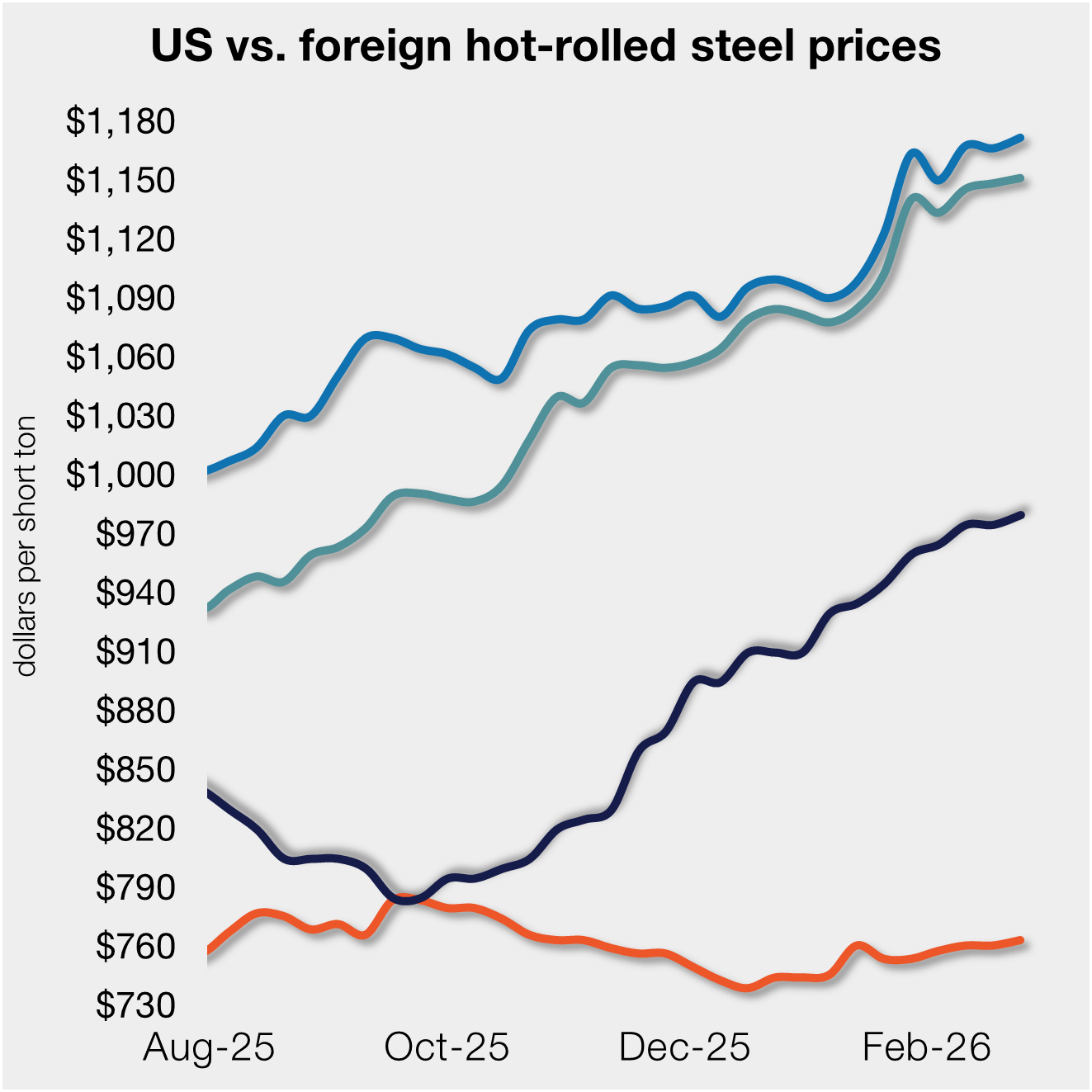Overseas

June 19, 2025
Bulk freight increases complicate ferrous trade flows
Written by Stephen Miller
There has been a sharp increase in bulk freight rates from the Eastern ports of North America over the last several weeks. Freight rates have risen $30-$50 on transatlantic cargoes, depending on the final destination. It is particularly affecting Handymax vessels that are widely used to export ferrous scrap.
Over the last month, bulk scrap sales from the US to Turkey have not materialized. Part of the reason, besides comparatively low pricing in Turkey versus US domestic levels, may be the swift increase in freight. However, several other factors have played a role.
SMU contacted a North American scrap exporter about this situation. He said freight costs to Mediterranean destinations have approached $40 per metric ton (mt). This is up from $24-$27 mt just two weeks ago.
“It is a supply and demand situation,” he said, adding there has been an increase in the shipment of other bulk commodities like coal products, wood chips and wood pellets. Another factor is the cost of fuel which has spiked due to the conflict in the Middle East. Also, the European restrictions on the type fuel vessels use in the Mediterranean Sea has added to the overall costs, he said.
Another cause is the recently proposed port cost assessments for Chinese-built carriers and fleets that employ them. This has reduced the number of vessels in position to avail themselves to US bookings. In speaking with a US-based shipping company, they told SMU of their total fleet, ~25% are of Chinese construction. This is another example of the unintended consequences of restraints on international trade, whether by tariffs or other punitive measures.
Revisiting the effects on scrap exports from North America, the buyers in Turkey have concentrated their procurements on scrap cargoes from Northern Europe. Rates to Turkey have not followed the uptrend in the US. This has caused shipping companies to position their vessels in this area of Europe and away from the US and Canada. Even with the prospects of higher freights available in North America, the cost of deadheading to the USEC is not worth the trip. They fare much better on the Northern Europe to Turkey route.
It is difficult at this time to understand how long this situation will last. It seems economic, and geopolitical and protectionist considerations have come together for this perfect storm.







